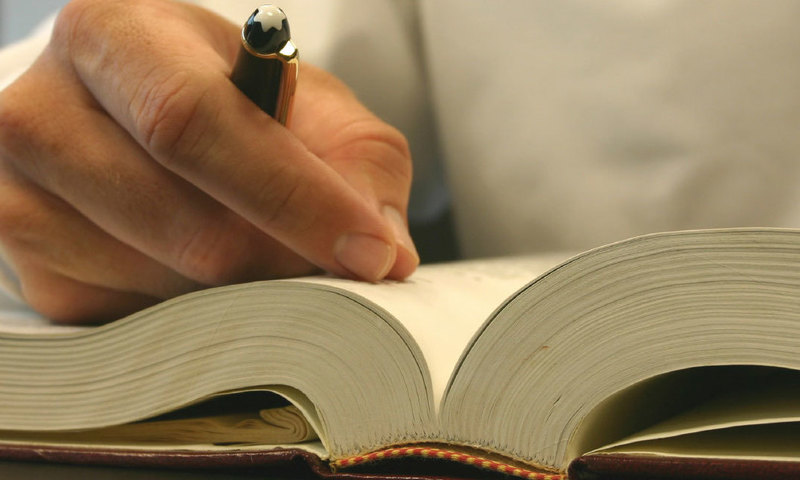Okay, there's a test on the way, and you're trying to put together a study strategy. You should:
(a) try to read all the material as many times as possible;
(b) try to use some mnemonic devices to remember it, like making a song out of the important terms;
(c) be a kinesthetic learner; go out and touch and experience the things you're studying (now, this may be less useful for philosophy classes!);
(d) read the material, close the book, then write down and/or say out loud as much as you can remember.
Perhaps surprisingly, recent research has found that (d) is the best way to get information into your long-term memory.
But doesn't it help to read and re-read until it all looks familiar? Not if you can't recite it after you close the book, says Jeffrey Karpicke of Purdue: "In our experiments, when students repeatedly read something, it falsely inflates their sense of their own learning... when you go into take a classroom test, or in real life when you need to reconstruct the knowledge, the book's not there."
"Active recall," whether it's quizzing yourself, using flashcards, or just reciting the information, is not a new idea; the "SQ3R" model (Survey, Question, Read, Recite, Review) goes back to 1946.
But isn't this only useful for 'fact'-based information, like remembering chemical tables and math formulas and historical dates? Isn't it too shallow for deeper, more thoughtful, integrative learning? According to the Chronicle of Higher Ed, Mark McDaniel of Washington University conducted one experiment that suggested that "a week after reading a complex passage, people who recited the material after reading it did much better at solving problems that involved analyzing and drawing inferences than did people who simply read the passage twice."
Now, people are different, and not all methods work for everyone. But if you don't yet have a study strategy, you might consider one that's proven to work; read carefully, close the book, and recite it back.
 Biola University
Biola University



.jpg)
.jpg)